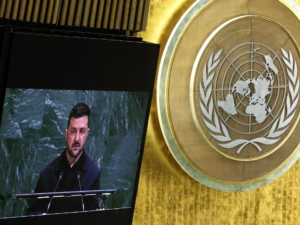There was little Qatar could have done against the ballistic missiles fired from Israel two weeks ago.
According to media reports, about 10 Israeli fighter planes flew over the Red Sea and then carried out an “over the horizon” attack, firing missiles that travel into the Earth’s upper atmosphere or outer space before returning to their targets.
The targets of the Israeli missiles were members of the militant Hamas group, meeting to discuss a possible Gaza ceasefire in a neighborhood in the Qatari capital, Doha. Six people were killed, but not Israel’s intended targets.
Expecting such an attack from over of the horizon caught Qatar off-guard, given that it has few defenses against ballistic missiles. One of its most critical safeguards against Israel is the presence of the US, whose largest regional base is located in the country. Israel’s biggest ally had to know about the strike, analysts said.
The attack may have shaken the Gulf Arab states’ trust in Washington’s security guarantees and will likely bring them closer together, according to several analysts.
The strike could also prompt moves toward an “Islamic NATO,” a defense alliance comprising Islamic and Arab states, similar to the North Atlantic Treaty Organization (NATO). But such an alliance is unlikely, analysts said.
A NATO-style defense arrangement would require the Gulf states to participate in wars they do not consider vital, according to Andreas Krieg, a Gulf security analyst. And a NATO-style alliance would also come with the risk of being drawn into a confrontation with Israel, something no Gulf ruler wants.
Any military coordination in the Gulf will happen slowly and quietly, analysts say, with most changes happening behind the scenes.
Source: https://www.dw.com/en/is-the-middle-east-about-to-get-an-islamic-nato/a-74111424?maca=en-rss-en-all-1573-rdf






